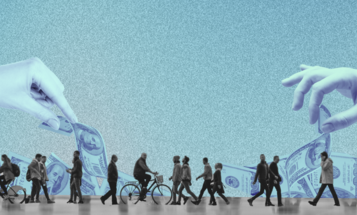
Pay Inequality Is a Threat to McDonald's Bottom Line
McDonald’s is losing customers. In the first quarter of 2014 US sales fell 1.7 percent—and that’s after a “challenging” 2013 when the company struggled to keep consumers happy and workers repeatedly walked out on strike. After decades of dominating the fast food industry, something is going wrong in the world of quick, convenient service, and not just under the golden arches.
My new report, Fast Food Failure: How CEO-to-Worker Pay Disparity Undermines the Industry and the Overall Economy, outlines how channeling disproportionate rewards to the top of the pay scale neglects critical investments in customer service and human capital at the front-lines, leading to the kind of disappointing earnings that McDonald’s announced yesterday. Across the industry, fast food companies are experiencing the negative effects of growing inequality on their bottom lines as misallocated resources undermine performance and threaten the success of the largest firms in the field.
As shown in the report, during 2013 fast food CEOs earned an average of $23.8 million; more than $1,000 for every $1 earned by the average worker at their restaurants. In the same year, operational issues, labor unrest, and legal costs added red ink to corporate ledgers industry-wide. At the same time that more and more experts are acknowledging that rampant inequality has negative consequences, corporate boards are being confronted with business problems resulting from the disparity they create.
But the negative consequences of extreme pay disparity are not isolated to the industry where they are produced. Fast food is one of the occupational categories with the highest projected growth over the coming decade. Retail, another big contributor to job growth and another low-wage industry, is the second-most disparate sector in the economy. Our growing reliance on these extremely unequal sources of employment means larger shares of the population will be shut-out of the gains from economic growth.
McDonald’s may be one of the first companies to own up to the growing consensus that inequality threatens the performance of businesses and poses a risk to investors’ returns. In March they warned shareholders that concerns about inequality could increase scrutiny of their workplace conditions, lead to supply chain interruptions, and damage the reputation of the company brand. And it makes sense for McDonald’s to be in front on this issue: as a member of the most unequal industry in the most unequal sector of the economy, they are seeing the cracks first-hand.



